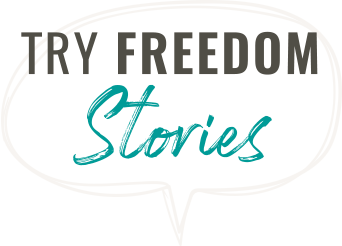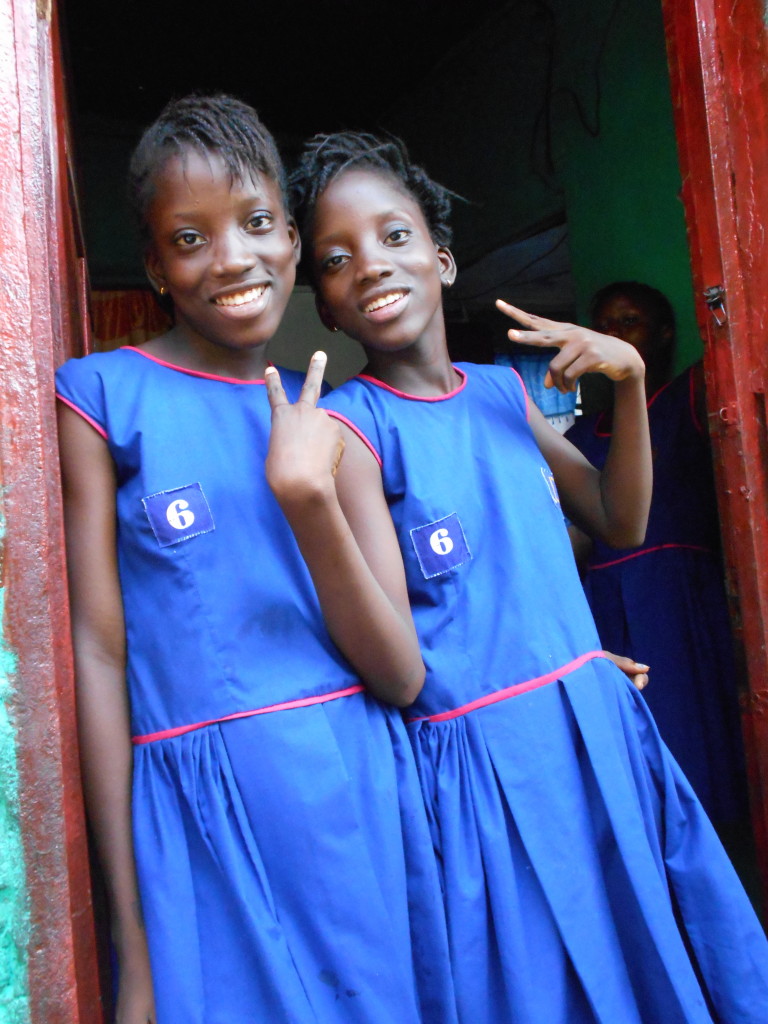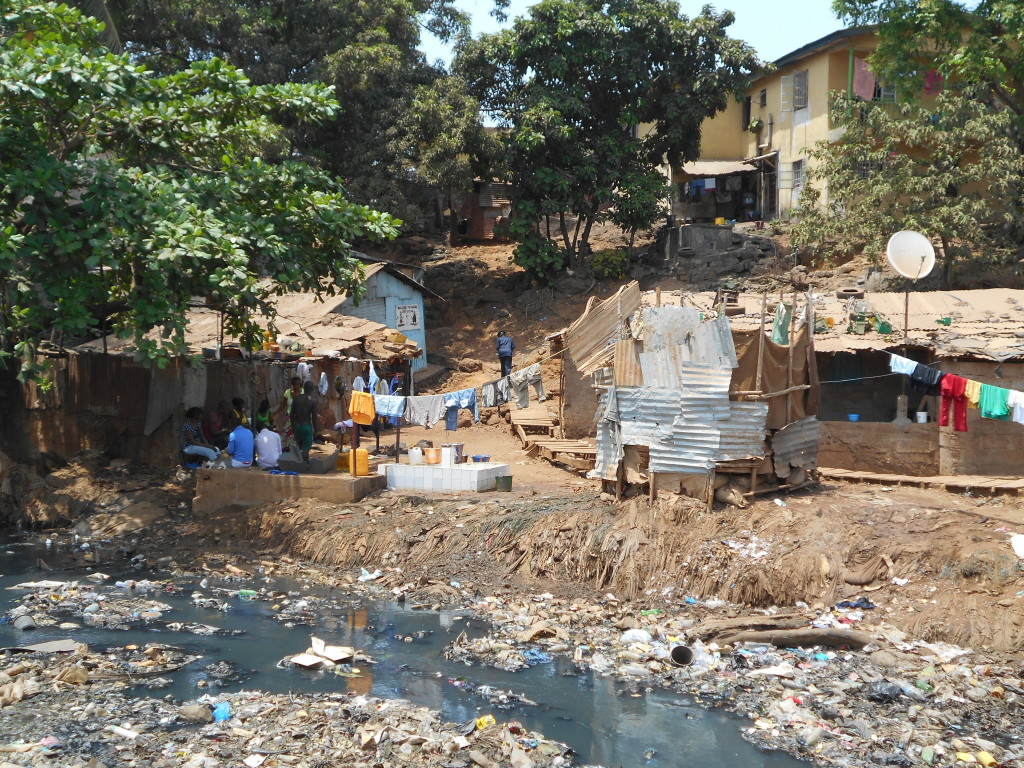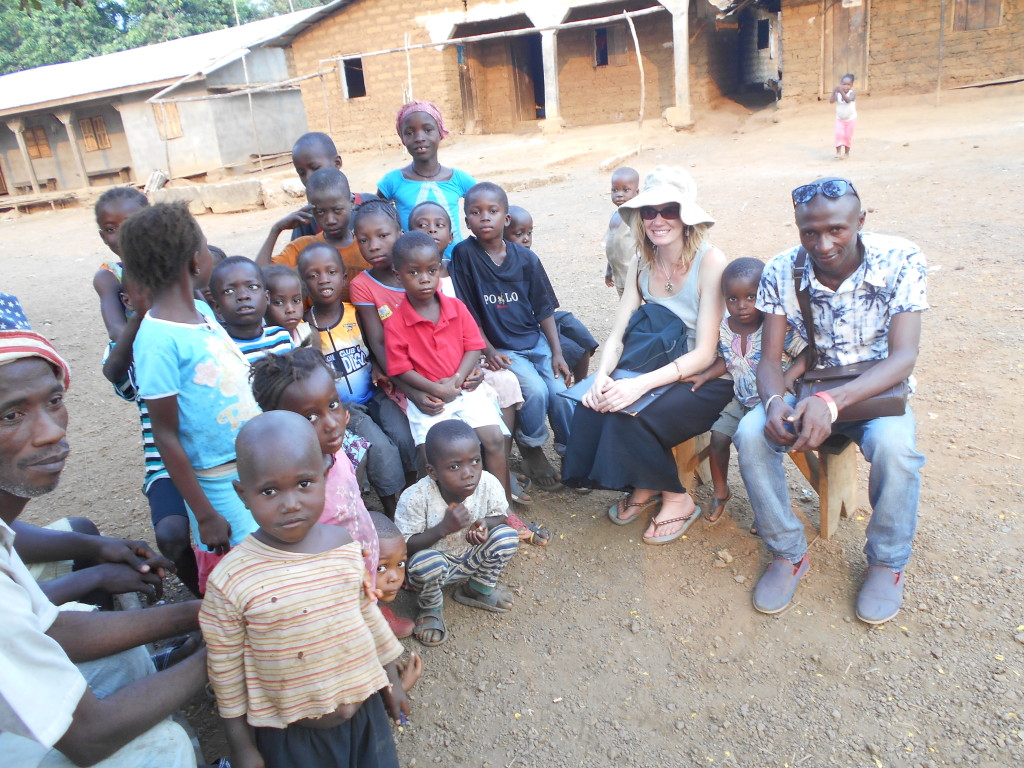Heather Cumming is the Director of Simwatachela Sustainable Arts and Agriculture Program (SSAAP). Heather’s organization has programs in both Sierra Leone and Zambia. Heather was most recently in Sierra Leone during the Ebola crisis. In this interview, she reflects on the education system, why SSAAP provides girls school uniforms, and how Ebola has set the recovering nation back many years.
Molly: Heather, one of your programs in Sierra Leone is providing school uniforms for girls. How did you become aware that this was a serious issue?
Heather: In Sierra Leone, it differs slightly from some of the other of the African nations in the sense that many of the African nations, they don’t have any provision in any of the ministries in the government to provide school fees or uniforms or even school shoes for the children. A few years ago, I want to say about the year 2000 to 2005, the war ended in 2001, the government passed some legislation in Sierra Leone that all of the children’s school fees were paid for by the government and that all the parent or custodian, guardian, sponsor had to do was provide the uniform and the school shoes and probably socks. So, the average uniform is pretty inexpensive. It helps more children go to school because they don’t have to pay the fees on top of it.
Molly: What other obstacles might girls, especially teenage girls, face with continuing in their schooling through their high school years or secondary years?
Heather: In every poverty situation, you always are going to have higher levels of prostitution, higher levels of sexually transmitted diseases, HIV. Now, we found out too, that Ebola’s actually a sexually transmitted disease, so we’ll have to add that to the list. But a lot of times, and I know UNICEF has worked really hard in Sierra Leone with this because it’s especially bad there and because of the destitution of the civil war and now with the Ebola crisis, a lot of parents actually sending their girls out to go bring in the money for the food for that day and usually it’s the parents or the family that the child’s staying with.
So, you find lots and lots of girls, the deeper you get away from the city, where people are more educated and more into the rural pockets in the provinces and the villages of the country, you find tons and tons of teenage pregnancies. Girls 15, 16, 17 years old, so they stopped, say in grade 7, grade 8, and had their baby. Now there’s a real push, a real movement to get these girls after they’ve had their children to get them to go back to school because Sierra Leone, they’re pretty aware of the rights that other people have in other parts of the world and what they’re being starved of. So they don’t want this anymore and the Sierra Leoneans themselves, it’s not just the international aid and the western thought processes of empowering women, but it’s also the women in Sierra Leone themselves that are really proactive about getting their girls back to school.
Then I think their education means so much more to them because they almost didn’t get it and they’re very, very, very aware that without education they can’t really do anything in their country and they can’t make proactive changes.
Molly: How might a girl’s future be different from dropping out at 7th, 8th grade, versus completing and graduating from secondary school?
Heather: Sure. So, we do have the highest unemployment rate in all of West Africa, in Sierra Leone. I’ve read some statistics that say it’s about 80%. Most of the local people tell me that it’s far higher. It’s almost like nobody has a job. So, people aren’t looking at it like, “Well, it’s pointless to get an education because there’s no employment opportunities.” They don’t look at it like that at all. They look at it like, “The way forward is to treat the women, treat the children like we care about them enough to have this education so that our country does not fall back into the same wrongful patterns that caused us to have: slavery in the 17 and 1800’s, massive, grotesque civil war in 1990-2000, Ebola in 2014, 2015.”
So, they know that they’re country is “behind” the world. In the sense that other parts of the world don’t battle with these things and they know that a large part of it is because their citizens aren’t educated or that the corruption is so high that — you’ll find this a lot, like a young student just sleeps with her teacher to get certain marks, passes the grade 12 and then has less knowledge or information or understanding of anything than like a 6th grader.
So, there are many other parts of Africa that they’re doing a lot of serious anti-corruption stuff because they know that it’s an old part of the African system. It’s not going to go away quickly, but that awareness needs to be turned on and I just don’t know in Sierra Leone, they seem very slow to want to change that.
Molly: So, tell me what kind of job could a girl who graduated from grade 12, what kind of job would she be qualified to do? I mean, obviously, it’s just a shortage of jobs to go around, but is there something that younger girls can look forward to saying, “If I graduate, I know I could maybe work as a teacher or nurse or something.”
Heather: Right and thank you because both of those things you brought up are very likely professions. In Sierra Leone, it’s still very much like the early days of America where there were those very specific jobs that women did. They were, in the professional world, they were nurses, teachers and — what was the third — secretaries. Basically, right?
Molly: Administrative.
Heather: Right. But, they were never like the boss and we’re seeing a change but the change is really slow. I would say in Sierra Leone it’s still pretty much the same way. You wouldn’t see a woman doctor, you would see a woman nurse. You would never see a woman be the deputy head or the head of the whatever school. The women are the teachers and then the male is the principal or the head of the school. But that’s still a step in the right direction, is getting women out in the workforce or having their eyes open to being suppressed and how it doesn’t have to be that way anymore. That doesn’t change what’s already been but things can change; they don’t have to stay this way.
I think that the Africans are going to have to be the ones to sort out their gender issues, ultimately. I don’t think the West, it’s not really … it’s their issue. We can show them by example. We can show them strong women, good leaders, women that want to do well, want to promote change and the betterment of society without being on a power trip, but we can’t force them into that. They have to come to whatever is democracy in Africa is very, very different than what is democracy in America or any of the Western, very young countries.
Molly: So secondary education is frowned upon for girls who’ve already experienced motherhood or teenage pregnancy. How does Sierra Leone differ in this from other African nations?
Heather:Yeah. They’re finished. In Sierra Leone, the girls get a second chance. SSAAP, Simwatachela Sustainable Agricultural and Arts Program, which is the small non-profit organization that I run, we are very, very happy and proud and so, so thankful to be able to help these girls because they are stigmatized, but at least they’re given a second chance. In Zambia, once the girl is pregnant, she is done. The whole thing’s over.
Molly: Why is it important to provide uniforms? Why does it come down to the uniforms being a big step where you can help them stay in school?
Heather:Yeah, so the uniform, I’ve seen the kids get up in the morning, they get up really early and they do some chores and stuff, wash with cold water, unless there’s a fire to warm the bath water, otherwise they just use cold water and they put on their uniform. Something happens that you can almost see the change in them from when they’re playing around in
their little play clothes, until when they put the uniform on. Then it’s like they have somewhere they have to be. They have something that they have to do. They have responsibility to take and because school is such a privilege and not every kid gets to go to school even though the government basically has it subsidized, said that they would pay for all of the children’s school fees.
The uniform still is the 10,000 Leones, which is $2.38 current exchange rate, that very small amount of money to us is enough of a deterrent to many parents especially ones that have like 10 kids. They still can’t afford it. So, school is still a huge privilege and lots of kids … kids don’t go to school without their uniform. So, if you don’t have money for a uniform, you can’t go to school, even that the school itself is free.
When these kids put on their uniform, they proudly walk to school and they all love it and it’s very refreshing because they’ve had to work so hard to go to school and they know that they’re very lucky. The kids at school really want to make the most of what they’ve been given.
Molly: Remember the whole thing that prompted this was that article, which was written by a young girl in school, talking about how the schools that opened back up since the Ebola virus and how it was important for them to just be able to go back to school, resume that sense of normalcy. How do you see having that national crisis affecting the education system?
Heather: Yeah. It’s set them back years. So, during the war, I would say that they lost a couple of years’ worth of school, when the war got really bad and that’s why I brought up the war. Now, when you look at it, there are kids who are 25 years old finishing their grade 12. They should be 17 or 18, just like in our system. Even a couple of years away from school, which Ebola, it’s still … I get text messages every day from my friend that sends quotes from the local newspaper. They’re trying to get 42 days with no new Ebola cases and no hospital or health center clinics that have any Ebola patients still in the beds. A couple of days ago, they got nine new cases. The World Health Organization requires 42 consecutive days no new cases, no Ebola patients in any beds.
I don’t think parents are allowing their kids to go back to school. The lack of education, the lack of knowledge, the lack of medical care and science in Sierra Leone causes people to not understand, like where did the disease come from? Nobody still knows that, even our scientists. But, how do they prevent it and what’s to prevent it from happening all over again? So, I read something that was like only 60% of the kids are even back in school. It’s still a very low number. I wouldn’t send my kid to school, there’s Ebola still around and school is great place to catch it because there’s germs everywhere.
It will be like half of a decade of a setback, just my prediction. In Africa, the effects of things are really, they’re pretty profound, like here we could probably snap things back together, get kids back to school. They just don’t have the resources for that and as long as that disease is still there, parents aren’t going to send their kids to school the way that they used to.
Molly: Thank you, Heather.
The Mission of Simwatachela Sustainable Arts and Agriculture Program is: to alleviate starvation by securing a sustainable water source; helping to promote sustainable agriculture and nutrition, as well as promoting empowerment through income-generating activities rooted in selling surplus products of indigenous artisans and community groups. Read more here: http://www.ssaap.org/index.php
Editor’s Note – Small clarification: Heather calculated the uniform cost incorrectly. It should have been about 24,000 Le or about $5.94 for a primary school girl child’s uniform. The uniform cost is approximately 10,000 KWACHA in Zambia, and as Heather works as well with school sponsorship programs in Zambia she confused the Kwacha (Zambian currency) with the Leone (Sierra Leone currency).




